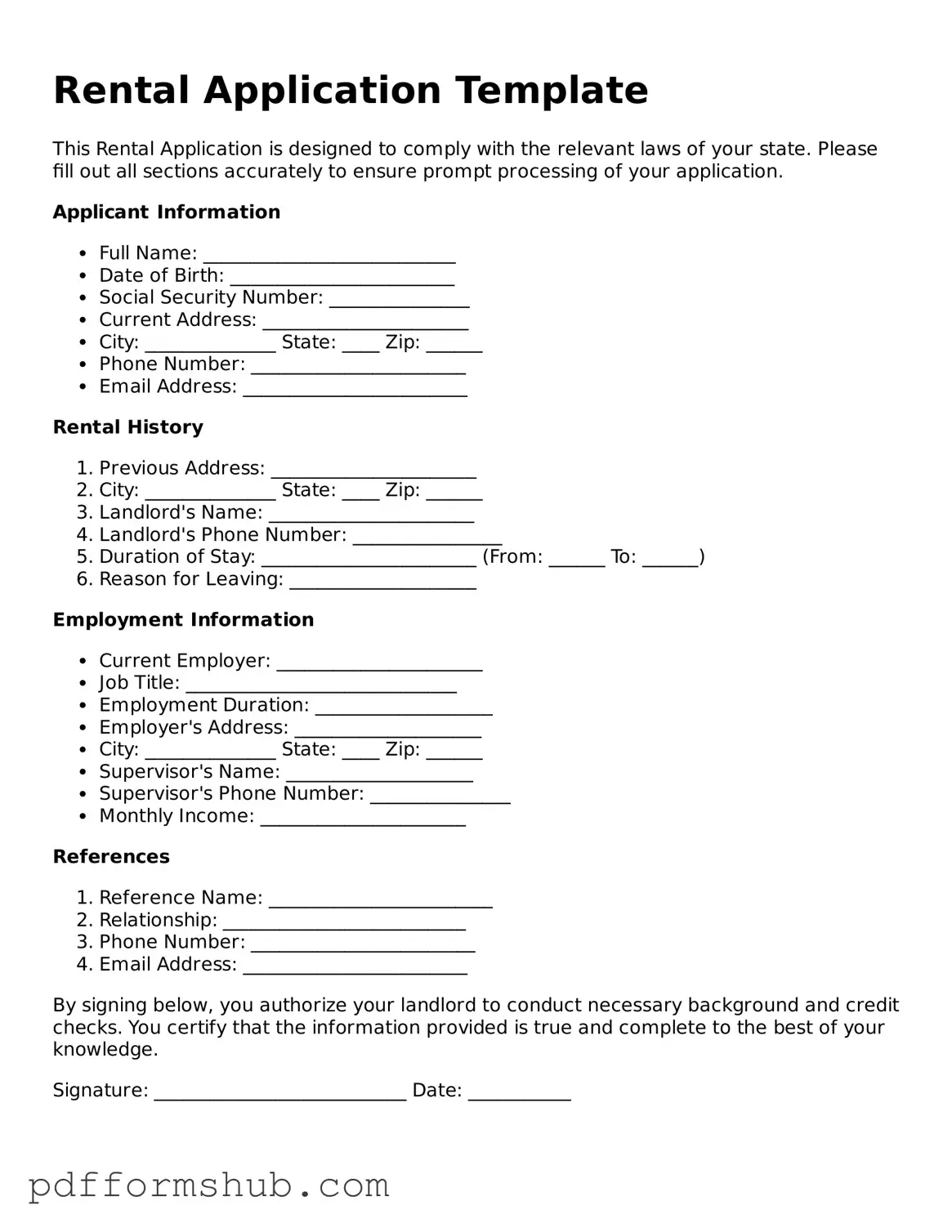Valid Rental Application Form
A Rental Application form is a document used by landlords and property managers to gather essential information about potential tenants. This form typically includes personal details, rental history, employment information, and references to help assess the applicant's suitability for a rental property. To ensure a smooth rental process, it's important to fill out the form accurately; click the button below to get started.
Customize Form

Valid Rental Application Form
Customize Form

Customize Form
or
Free PDF Form
Short deadline? Complete this form now
Complete Rental Application online without printing hassles.